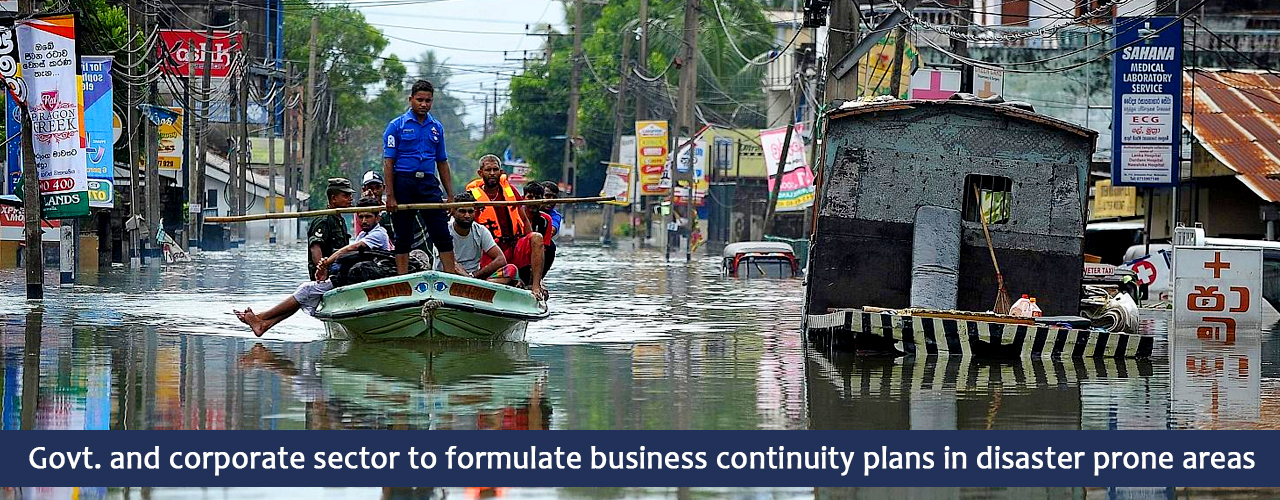Govt. and corporate sector to formulate business continuity plans in disaster prone areas
The Government of Sri Lanka (GoSL) and the country’s corporate sector has discussed formulating business continuity plans for areas susceptible to natural disasters and encouraging tight cooperation amongst companies that would provide valuable field service when disaster strikes.
The move was mooted at a meeting held by the Asia Pacific Alliance for Disaster Management Sri Lanka (A-PAD) with the participation of the Ministry of Disaster Management and the United Nations Development Programme.
The Secretary to the Ministry of Disaster Management, S. S. Miyanawala said that a “National Disaster Management Plan 2018-2022” was in the process of being drafted together a national emergency operation plan.
“These initiatives will streamline the government approach in reducing disaster impacts in future and talks will lead to collaborative public-private sector work in the future on ‘Disaster Risk Reduction’,” he said.
According to UNDP technical advisor, Buddhika Hapuarachchi the estimated damage as a result of disasters in 2017 amounted to approximately LKR 5 billion.
Hapuarachchi said that the government needed to institute an apparatus to benefit from private sector involvement when dealing with natural disasters.
A national platform as proposed under international disaster management frameworks to better coordinate with the private sector to implement the government’s disaster risk reduction programme is being considered and “Area Business Continuity Management” plans involving state organisations and companies are to be formulated in disaster prone economic zones and areas for corporate involvement.¹
According to A-PAD Country Director, Firzan Hashim the private sector had profound power in the field adding that the country’s Disaster Management Centre could capitalise on their vast business and area operational network in areas susceptible to natural disasters.
“Past experience has shown that when a disaster occurs, the local government machinery gets overwhelmed as it has limited capacity. This could be avoided if a district or divisional platform is created for the private sector to be engaged for their support to be optimised,”he said.
OSL TAKE:
Private sector cooperation in disaster management initiatives will provide opportunities for the sector to introduce innovations and technological advancements in the field as well as form PPPs for infrastructure related projects.
¹http://www.economynext.com/Sri_Lanka_prepares_business_continuity_plans_in_disaster_prone_areas-3-8675.html
| Article Code : | VBS/AT/11092017/Z_6 |

